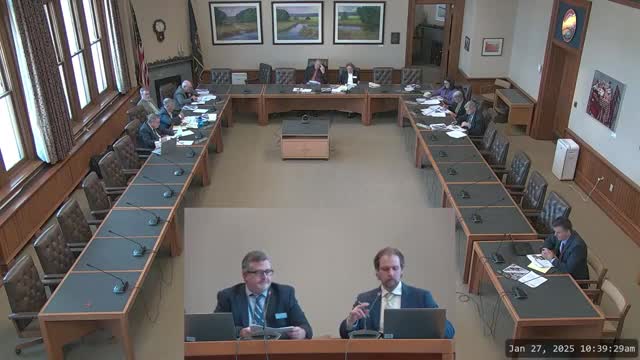DHHS centralizes contracts unit and emphasizes enforceable performance measures and provider monitoring
Get AI-powered insights, summaries, and transcripts
Subscribe
Summary
DHHS staff described a centralized contracts bureau that prepares solicitations, conducts risk assessments, and seeks enforceable performance measures; staff said every contract over $10,000 goes to the executive council.
Nathan White, chief financial officer for the Department of Health and Human Services, described the department’s centralized contracts unit and its approach to solicitations, amendments, grants and risk-based monitoring.
White said the centralized team drafts RFAs/RFPs, prepares contract amendments and grant agreements, and applies standardized templates and processes to improve enforceability and measurable outcomes. He told the committee that “every contract over $10,000 has to go through the executive council process,” and that an amendment to a contract previously approved by the executive council must return to council for approval if key language is changed.
White said the bureau moves a high volume of agreements annually and has adopted Lean Six Sigma and DMAIC practices to measure and accelerate its work. He said the contracts team conducts risk assessments on providers, adjusting oversight levels based on operational and financial risk, and that the department conducts provider audits and monitors financial solvency for higher-risk providers.
White and his colleagues said the department is pushing for more meaningful performance measures in contracts so the department can assess outputs and outcomes and “course correct” mid-contract if services are not producing expected results. He noted that Meredith Toulouse (referred to in presentations) leads quality and performance work, including audits and a fraud, waste and abuse function.
Committee members asked about external outreach and making contract opportunities more accessible to nonprofit providers; White said the department has made presentations and can provide more detail to the committee in later briefings. No formal contract approvals or policy changes were decided at the hearing.
